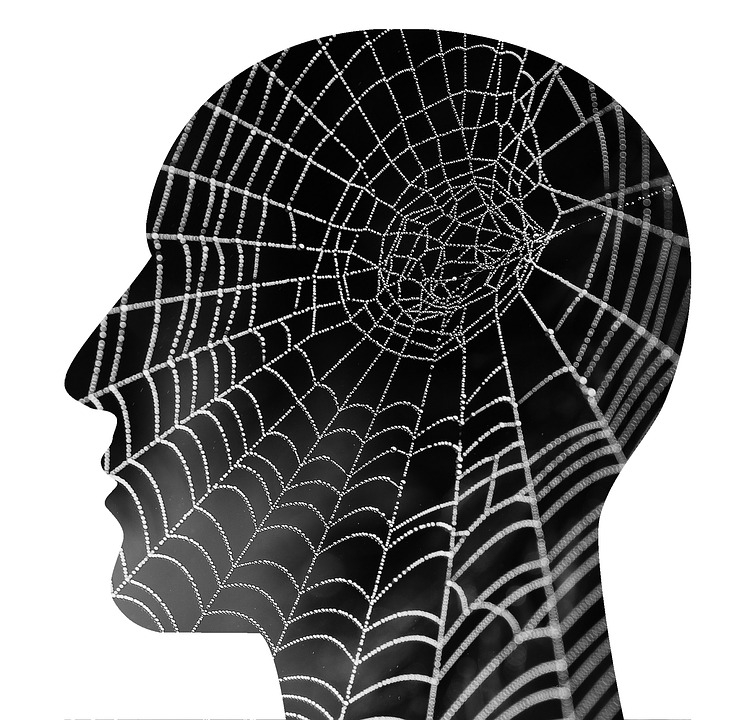One of the emerging psychiatric disorder that has significant medical and psychiatric consequences is compulsive sexual behaviour or hypersexuality, is an obsession with sexual thoughts in which people cannot manage their sexual behaviour. It may involve a commonly enjoyable sexual experience as self-stimulation which becomes an obsession. The person suffering from the condition may also get involved in sexual behaviours that are outside the bounds of commonly accepted conduct like paying for sex or having extramarital affairs.
Untreated compulsive sexual behaviour damages one’s self-esteem, health, job, relationships and career. However, with treatment and self-help,
one can manage compulsive sexual behaviour and learn to manage one’s urge. Males are more likely to be unfaithful than females because they have stronger sexual impulses and weaker self-control. Compulsive sexual behaviour symptoms vary in type and severity. During intense sexual impulses, one feels as if they're beyond control. This is the first and the most common symptom as the patient uses compulsive sexual behaviour as an escape route for problems like loneliness, depression, anxiety and stress. One has trouble establishing and maintaining emotional closeness, even if one is married or in a committed relationship.
The treatment for compulsive sexual behaviour involves psychotherapy and medications. A primary goal of treatment is to help one manage urges and reduce excessive behaviours while maintaining healthy sexual activities. If one has compulsive sexual behaviour, one may need treatment for mental health condition. People with compulsive sexual behaviour often have alcohol or drug abuse problems or a mood disorder such as depression.
Counselling sessions can help one learn how to manage one’s compulsive sexual behaviour. Intensive treatment programs for compulsive sexual behaviours focus on identification of core triggers and beliefs about sexual addiction. It assists in development of healthier choices and coping skills to minimize urges and deal with the preoccupation of sexual addiction. Psychodynamic psychotherapy can prove to be very useful as it focuses on increasing one’s awareness of unconscious thoughts and behaviours, and developing new insights into their motivations. Resolving conflicts using this therapy is also recommended. The other kind of treatment program is cognitive behavioural therapy. This therapy helps one to identify unhealthy, negative beliefs and behaviours and replace them with healthy, positive ones. Family therapy and couples therapy may restore trust, minimize shame and guilt thus establishing a healthy sexual relationship between partners.
Medications include anti-depressants like selective serotonin reuptake inhibitors, mood stabilizers and anti-androgens have also been used to treat compulsive sexual behaviour. Anti-androgens are prescribed as it reduces the biological effects of sex hormones in men thus reducing sexual urges. Luteinizing hormone is also prescribed as it reduces obsessive sexual thoughts by reducing the production of testosterone. Anti-seizure medications, naltrexone, and medications which decrease male hormones have been found to decrease the compulsive urges and impulses associated with sexual addictions for some sufferers.
Nearly 80 genes that could be linked to depression have been identified, a finding that adds to the evidence that it is partly a genetic disorder, say scientists.
Depression, a common mental disorder, is the leading cause of ill health and disability worldwide.
According to the latest estimates from the World Health Organisation (WHO), more than 300 million people are now living with depression, an increase of more than 18 per cent between 2005 and 2015.
"This study identifies genes that potentially increase our risk of depression, adding to the evidence that it is partly a genetic disorder," said lead author David Howard, research fellow at the University of Edinburgh.
Some of the pinpointed genes are known to be involved in the function of synapses, tiny connectors that allow brain cells to communicate with each other through electrical and chemical signals, the researchers said.
The study could help explain why some people may be at a higher risk of developing the condition as well as help researchers develop drugs to tackle mental health conditions.
"The findings also provide new clues to the causes of depression and we hope it will narrow down the search for therapies that could help people living with the condition," Howard added.
For the study, published in Nature Communications, the team scanned the genetic code of 300,000 people to identify areas of DNA that could be linked to depression.
The WHO has identified strong links between depression and substance use disorders and diabetes and heart disease.
Depression is also an important risk factor for suicide, which claims hundreds of thousands of lives each year.
Lack of support for people with mental disorders, coupled with a fear of stigma, prevent many from accessing the treatment they need to live healthy, productive lives.

People experiencing mental illness are subjected to social stigma, ridiculed for “just in your head” issues and told their problem is “all an excuse”.
UK journalist Hattie Gladwell started a Twitter thread with the hashtag #ThingsPeopleHaveSaidAboutMyMentalIllness and asked her followers to reveal the most unhelpful, insensitive or insulting things ever said to them about their mental illness.
“One person told me I didn’t need medication, I just needed to be more motivated to cope with my mental health,” Gladwell posted @hattiegladwell as she shared her experience.
Gladwell’s tweet got an overwhelming response with grievances pouring in from across the world. Fed up of being dismissed and not heard, people began sharing the worst things said to them about their mental health.
It was soon widely shared, garnering over 600 responses. It was liked by 2,600 people and shared nearly 470 times.
In India, mental health came into media focus when Bollywood actor Deepika Padukone opened up about depression in an interview in 2015. She spearheads The Live Laugh Love Foundation that aims to reduce the stigma, spread awareness and change the way people look at mental health issues.
Following Padukone’s confession, several prominent personalities such as Varun Dhawan, Ileana D’Cruz, Shama Sikander and Manisha Koirala too came out with stories of battling with depression, bipolar disorders, body dysmorphic disorder and anxiety.
The National Mental Health Survey of India-2016 describes mental disorders as a diverse group of conditions varying in their presentation ranging from acute to recurrent to chronic, mild to severe, multiple disorders to single illness, morbid or co-morbid conditions and in several other ways.
The findings of the survey revealed that one in 20 people in India suffer from depression, a high prevalence of psychoactive substance use and that high suicidal risk is an increasing concern.
India is home to several organisations that provide assistance to people suffering from mental illnesses. Some of them are AASRA (Mumbai), The Banyan (Chennai), Sanjivini Society For Mental Health (Delhi) among others.
Children raised without pets in an urban setting are more vulnerable to mental illness than those raised in a rural environment, surrounded by animals and bacteria-laden dust, says a new study. Kids raised in rural settings may grow up to have more stress-resilient immune systems and might be at lower risk of mental illness, according to the study published in the journal Proceedings of the National Academy of Sciences (PNAS).
The study adds to mounting evidence supporting the “hygiene hypothesis,” which posits that overly sterile environments can lead to health problems. The research also suggests that raising kids around pets might be good for mental health.
“It has already been very well documented that exposure to pets and rural environments during development is beneficial in terms of reducing risk of asthma and allergies later in life,” said study co-author, Christopher Lowry, Professor at the University of Colorado Boulder in the US.
“This study moves the conversation forward by showing for the first time in humans that these same exposures are likely to be important for mental health,” Lowry added. For the study, led by Professor Stefan Reber of the University of Ulm in Germany, the scientists recruited a small group of healthy German men between ages 20 and 40. Half had grown up on a farm with farm animals. Half had grown up in a large city without pets.
On test day, all were asked to give a speech in front of a group of stone-faced observers and then asked to solve a difficult math problem while being timed. Blood and saliva were taken five minutes before and five, 15, 60, 90 and 120 minutes after the test.
“People who grew up in an urban environment had a much-exaggerated induction of the inflammatory immune response to the stressor, and it persisted throughout the two-hour period,” Lowry said. Previous studies have shown that those with an exaggerated inflammatory response are more likely to develop depression and post-traumatic stress disorder (PTSD) later in life.
Research has also shown that our immunoregulatory response to stress develops in early life and is shaped largely by our microbial environment. More than 50 per cent of the world’s population now lives in urban areas, meaning humans are exposed to far fewer micro-organisms than they evolved with, the authors noted.
“If you are not exposed to these types of organisms, then your immune system doesn’t develop a balance between inflammatory and anti-inflammatory forces, and you can develop a chronic, low-grade inflammation and exaggerated immune reactivity that makes you vulnerable to allergy, autoimmune disease and, we propose, psychiatric disorders,” Lowry said.











